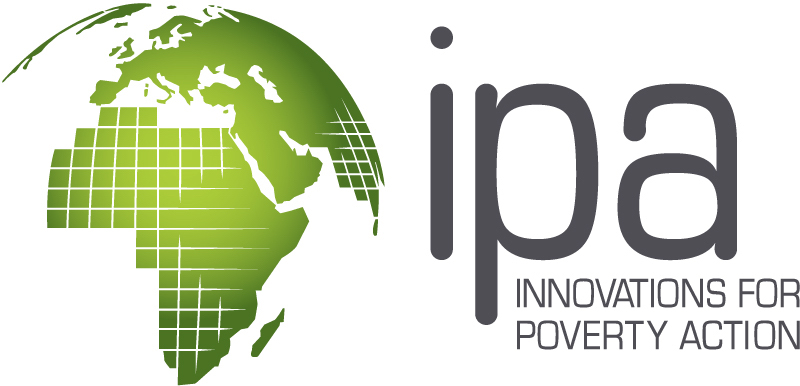|
RECOVR Roundup Newsletter
Social Protection in the Time of COVID-19
|
Welcome to the 19th edition of our RECOVR Roundup! For those of you who are new to IPA's mailing list, the RECOVR Roundup is a newsletter where we share new findings and analysis from the RECOVR Research Hub and from our partner organizations—as well as links on what is happening in the Social Protection landscape in response to COVID-19.
As always, we encourage you to write to our team with ideas for features.
|
|
 New Findings & Analysis New Findings & Analysis
|
Middle East and North Africa: The Impact of COVID-19 on Livelihoods
Social assistance remains poorly targeted despite the largest income losses among the poor and informal workers
An ongoing study by researchers Caroline Krafft, Ragui Assaad, and Mohamed Ali Marouani through the Economic Research
Forum tracks the effects of the crisis on households, workers, and micro and small enterprises in Egypt, Jordan, Tunisia, and Morocco. The first series of surveys, completed in February 2021, found that almost half of households reported decreased income compared to February 2020. In most of these countries, the poor experienced the largest income losses. Wage workers, particularly informal workers, have experienced the greatest proportion of layoffs, reduced hours, and reduced earnings due to COVID-19, with women most likely to leave their jobs. Social protection measures have reached only a fraction of the population. Jordan had the greatest social assistance coverage with 52 percent of households receiving some assistance. In Tunisia coverage reached 20 percent, in Morocco 21 percent, and in Egypt 12 percent. The researchers argue that social
protection systems in these countries have insufficient reach and remain poorly targeted in the face of continued challenges.
|
|
|
India: Understanding the Implications of COVID-19 on the Elderly
In Tamil Nadu, a strict lockdown left many elderly living alone vulnerable to food insecurity and depression
The Tamil Nadu Aging Panel Survey, a partnership between J-PAL South Asia and the Government of Tamil Nadu, measures the long-term well-being of elderly individuals. Researchers Esther Duflo, Abhijit Banerjee, Frank Schilbach, and Girija Vaidyanathan have been collecting data on how social protection programs like old age pensions may mitigate the effects of large negative shocks and crises. Surveys conducted in April and July 2020 uncover immediate impacts of the COVID-19 shock: at the start of the lockdown nearly 50 percent of respondents reported not having enough food for the week, and food insecurity rose by July and was especially high for elderly living alone. Respondents’ mental health also deteriorated: as the lockdown progressed, all elderly (those living alone and those living with others) became far more likely to express feelings of loneliness and depression. This was also
especially true for the elderly living alone, 32 percent of whom reported often feeling lonely when asked in July. Researchers highlight that the elderly living alone constitute a blind spot in economic policymaking, underscored by their vulnerability in the COVID-19 crisis.
|
|
|
Guatemala: Knowledge, Attitudes, and Practices in Indigenous Municipalities
Key members of indigenous communities reported substantial need for hygiene and food, but limited social assistance
Through the Population Council, researchers Angel del Valle, Hannah Briggs, Benjamin Chang, Aiken Chew, Brian Medina, Gabriela Muñoz, Thoai D. Ngo, Elizabeth Vásquez, and Corinne White conducted phone-based interviews with indigenous community leaders to understand their knowledge, perspectives, and needs at the onset of the pandemic. April 2020 surveys with 144 key community members in 10 indigenous municipalities showed that community members faced challenges in adhering to hygiene and social distancing guidelines due to a lack of water, the expense of hand sanitizer, and single-room households. Interviews in July 2020 showed high adoption of prevention practices despite mixed understanding of symptoms. Access to health
facilities continued to be a challenge: only 37 percent of informants had access to a health clinic. By the end of July 2020, only 26 percent of participants had received any form of social assistance, despite unmet needs for food (61 percent), money (39 percent), hygiene products (18 percent), and medicine (14 percent). |
|
|
 What We're Reading & Watching What We're Reading & Watching
|
- To improve the shock responsiveness of social protection programs, the Maintains Programme calls for establishing pre-agreed financial commitments, leveraging administrative data and promoting interoperability, and supporting vulnerable groups to register with digital financial providers. Read the full set of recommendations here.
- If you weren’t able to attend the virtual conference “Turning the COVID-19 crisis into an opportunity: What’s next for social protection?” you can read a summary here, with highlights on financing social protection, universal basic income, linkages to food security and employment, as well as gender-, child-, and disability-sensitive programs.
- International remittance flows in 2020 defied expectations, only falling 1.8 percent below 2019 levels. The new brief, COVID-19 through a Migration Lens, takes stock of the pandemic’s effect on global remittances and recommends lowering transaction fees to sustain remittance flows in the face of continued economic hardships.
- Could the pandemic help make the case for a global social protection fund? Olivier De Schutter, UN Special Rapporteur on Extreme Poverty and Human Rights, makes the case and urges for social protection to be seen as an investment, rather than just a cost.
- The UN recently hosted a “Behavioural Science Week,” and you can read brief takeaways here as well as the organization’s accompanying UN Behavioural Science Report. Researcher Katy Milkman highlighted current behaviorally-informed campaigns to increase vaccinations for COVID-19. Milkman and IPA researchers are also exploring the impacts of quiz-style information campaigns on COVID-19 prevention in the United States and Ghana.
|
If you’d prefer to not receive these Roundup emails in the future, you can manage your email preferences or unsubscribe here.
|
|
